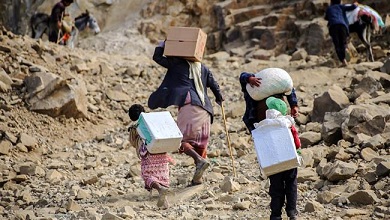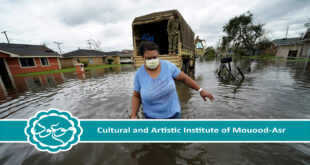Aid agencies have warned that hundreds of millions of people around the world are threatened by a lack of food and water due to severe weather conditions and wars in early 2016.
The United Nations World Food Program (WFP) said on Thursday that about 795 million people across the world, 98 percent of them from developing countries, were going hungry as a result of the current global situation.
The United Nation’s Food and Agriculture Organization (FAO) also warned that droughts and floods would be strong in March, as the El Niño weather phenomenon was expected to peak in the start of 2016.
In a similar statement, Oxfam’s Humanitarian Director Jane Cocking stated that millions of people in countries such as Ethiopia, Haiti and Papua New Guinea were already feeling the effects of “drought and crop failure.”
Some 10.2 million in Ethiopia’s population of 94 million are in need of humanitarian assistance due to weather conditions in 2016, while some three million are in serious need of aid in Malawai, where they are struggling with drought. South Africa has also declared disaster in a number of areas.
According to Oxfam, two million people across Guatemala, Honduras, El Salvador and Nicaragua are already in need of food aid after drought and erratic rains.
The aid agencies all urged more funding and assistance to the nations in need in 2016.
This comes as figures indicate that more than 60 million people have been forced to flee their homes as a result of war and persecution in countries, particularly Syria, where over 250,000 have so far lost their lives to the militancy that broke out there in 2011.
According to the WFP, some 7.6 million people from Yemen’s 24 million population have been going without food for weeks.
“WFP has delivered food assistance to Ta’izz governorate in the hope of reaching every person in need, but so far we have not been able to reach most of them,” said Muhannad Hadi, the organization’s regional director.
Saudi Arabia has been engaged in a military campaign against Yemen since March 2015. More than 7,500 people have so far been killed in the attacks, which have also taken a heavy toll on the impoverished country’s facilities and infrastructure.
 Mouood Mouood English Edition
Mouood Mouood English Edition




